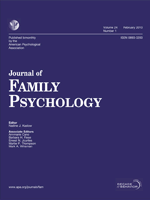Cultural bias is the interpretation and judgment of phenomena by the standards of one's own culture. It is sometimes considered a problem central to social and human sciences, such as economics, psychology, anthropology, and sociology. Some practitioners of these fields have attempted to develop methods and theories to compensate for or eliminate cultural bias.
The term "minority group" has different usages, depending on the context. According to its common usage, the term minority group can simply be understood in terms of demographic sizes within a population: i.e. a group in society with the least number of individuals, or less than half, is a "minority". Usually a minority group is disempowered relative to the majority, and that characteristic lends itself to different applications of the term minority.
Tokenism is the practice of making only a perfunctory or symbolic effort to be inclusive to members of minority groups, especially by recruiting people from underrepresented groups in order to give the appearance of racial or gender equality within a workplace or educational context. The effort of including a token individual in work or school is usually intended to create the impression of social inclusiveness and diversity.

The Journal of Personality and Social Psychology is a monthly peer-reviewed scientific journal published by the American Psychological Association that was established in 1965. It covers the fields of social and personality psychology. The editors-in-chief are Shinobu Kitayama, Colin Wayne Leach, and Richard E. Lucas.

The Psychological Bulletin is a monthly peer-reviewed academic journal that publishes evaluative and integrative research reviews and interpretations of issues in psychology, including both qualitative (narrative) and/or quantitative (meta-analytic) aspects. The editor-in-chief is Blair T. Johnson.
The Journal of Abnormal Psychology is a peer-reviewed academic journal published by the American Psychological Association (APA). The journal has been in publication for over 110 years, and it is considered to be a "preeminent outlet for research in psychopathology". Beginning in 2022, the journal will be known as the Journal of Psychopathology and Clinical Science.

Mental distress or psychological distress encompasses the symptoms and experiences of a person's internal life that are commonly held to be troubling, confusing or out of the ordinary. Mental distress can potentially lead to a change of behavior, affect a person's emotions in a negative way, and affect their relationships with the people around them.
Microaggression is a term used for commonplace verbal, behavioral or environmental slights, whether intentional or unintentional, that communicate hostile, derogatory, or negative attitudes toward those of different races, cultures, beliefs, or genders. The term was coined by Harvard University psychiatrist Chester M. Pierce in 1970 to describe insults and dismissals which he regularly witnessed non-black Americans inflicting on African Americans. By the early 21st century, use of the term was applied to the casual disparagement of any socially marginalized group, including LGBT people, poor people, and disabled people. Psychologist Derald Wing Sue defines microaggressions as "brief, everyday exchanges that send denigrating messages to certain individuals because of their group membership". The persons making the comments may be otherwise well-intentioned and unaware of the potential impact of their words.
Hazel June Linda Rose Markus is an American social psychologist and a pioneer in the field of cultural psychology. She is the Davis-Brack Professor in the Behavioral Sciences at Stanford University in Stanford, California. She is also a founder and faculty director of Stanford SPARQ, a "do tank" that partners with industry leaders to tackle disparities and inspire culture change using insights from behavioral science. She is a founder and former director of the Research Institute of the Center for Comparative Studies in Race and Ethnicity (CCSRE). Her research focuses on how culture shapes mind and behavior. She examines how many forms of culture influence the self, and in turn, how we think, feel, and act.
Ethnic identity development includes the identity formation in an individual's self-categorization in, and psychological attachment to, (an) ethnic group(s). Ethnic identity is characterized as part of one's overarching self-concept and identification. It is distinct from the development of ethnic group identities.

The Journal of Comparative Psychology is a peer-reviewed academic journal published by the American Psychological Association. It covers research from a comparative perspective on the behavior, cognition, perception, and social relationships of diverse species.

The Journal of Family Psychology is a peer-reviewed academic journal published by the American Psychological Association. It was established in 1987 and covers research in family psychology. The current editor-in-chief is Barbara H. Fiese.

Psychological Assessment is a peer-reviewed academic journal published by the American Psychological Association. It was established in 1989 and covers research in clinical psychology. The current editor-in-chief is Julie A. Suhr.

Kay Deaux is an American social psychologist known for her pioneering research on immigration and feminist identity. Deaux is Distinguished Professor Emerita at the Department of Psychology at the Graduate Center of the City University of New York (CUNY). According to Brenda Major, Deaux's work centers on the question of how social categories affect one's psychological makeup, social behavior, and life outcomes, while emphasizing the subjectivity of people's identities and experiences and the larger social context.
Robert M. Sellers is the Charles D. Moody Collegiate Professor of Psychology and Education at University of Michigan who formerly served as the Vice Provost for Equity and Inclusion & Chief Diversity Officer. His research focuses on the importance of racial identity. Most specifically, Sellers focuses on the identity of African Americans, regarding a variety of domains, such as mental health and discrimination.
Diversity ideology refers to individual beliefs regarding the nature of intergroup relations and how to improve them in culturally diverse societies. A large amount of scientific literature in social psychology studies diversity ideologies as prejudice reduction strategies, most commonly in the context of racial groups and interracial interactions. In research studies on the effects of diversity ideology, social psychologists have either examined endorsement of a diversity ideology as individual difference or used situational priming designs to activate the mindset of a particular diversity ideology. It is consistently shown that diversity ideologies influence how individuals perceive, judge and treat cultural outgroup members. Different diversity ideologies are associated with distinct effects on intergroup relations, such as stereotyping and prejudice, intergroup equality, and intergroup interactions from the perspectives of both majority and minority group members. Beyond intergroup consequences, diversity ideology also has implications on individual outcomes, such as whether people are open to cultural fusion and foreign ideas, which in turn predict creativity.

Jean Lau Chin was an American clinical psychologist known for her work on diversity in leadership, cultural competence in mental health care, and women's issues and feminism. She was Professor of Psychology and former Dean of the Gordon F. Derner School of Psychology at Adelphi University. Chin was the first Asian American psychologist to be licensed in Massachusetts.

Kevin Cokley is an African-American counselling psychologist, academic and researcher. He is University Diversity and Social Transformation Professor, Associate Chair of Diversity Initiatives, Professor of Psychology at the University of Michigan Ann Arbor. Previously he was the Oscar and Anne Mauzy Regents Professor of Educational Research and Development, Department Chair of Educational Psychology, and Professor of African and African Diaspora Studies at the University of Texas at Austin, where he directed the Institute for Urban Policy Research & Analysis. He was a Fellow of the UT System Academy of Distinguished Teachers and a Distinguished Teaching Professor at the University of Texas at Austin.
Diane Leslie Hughes is a developmental psychologist known for her research on racial-ethnic socialization, parent-child communication about discrimination and racism, interracial relationships, and the influence of racial ecology on people's experiences in social settings. She is Professor of Applied Psychology at the Steinhardt School of Culture, Education, and Human Development and co-director of the Center for Research on Culture, Development, and Education at New York University.
Esteban L. Olmedo is an organizational psychologist who conducted research on acculturation, ethnic minority issues, and mental health. Olmedo was the inaugural director of the Ethnicity, Race, and Cultural Affairs Portfolio at the American Psychological Association (APA).









